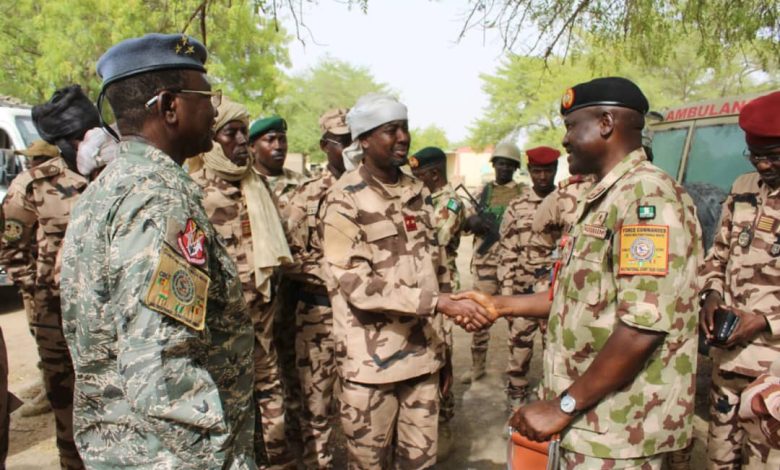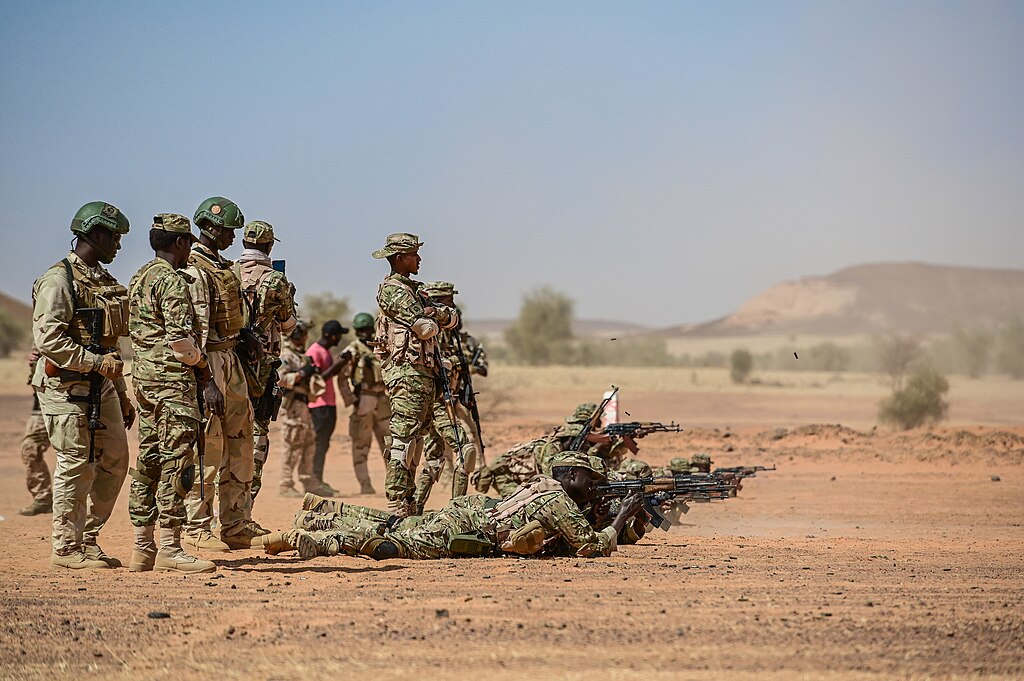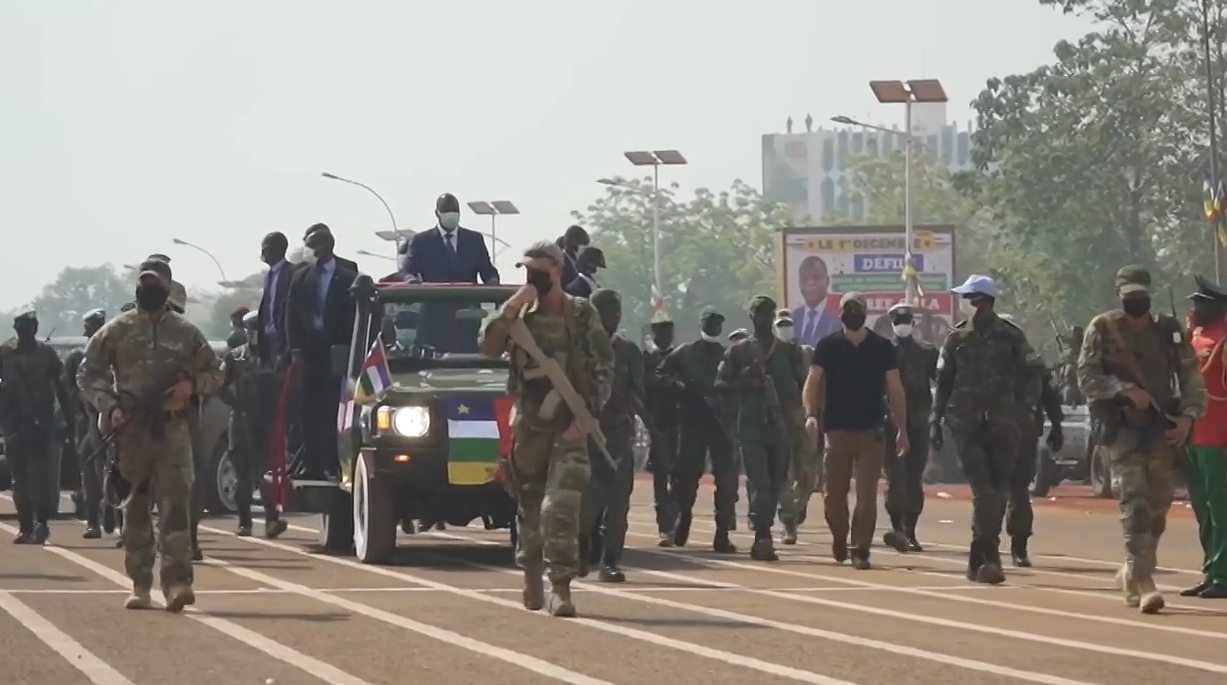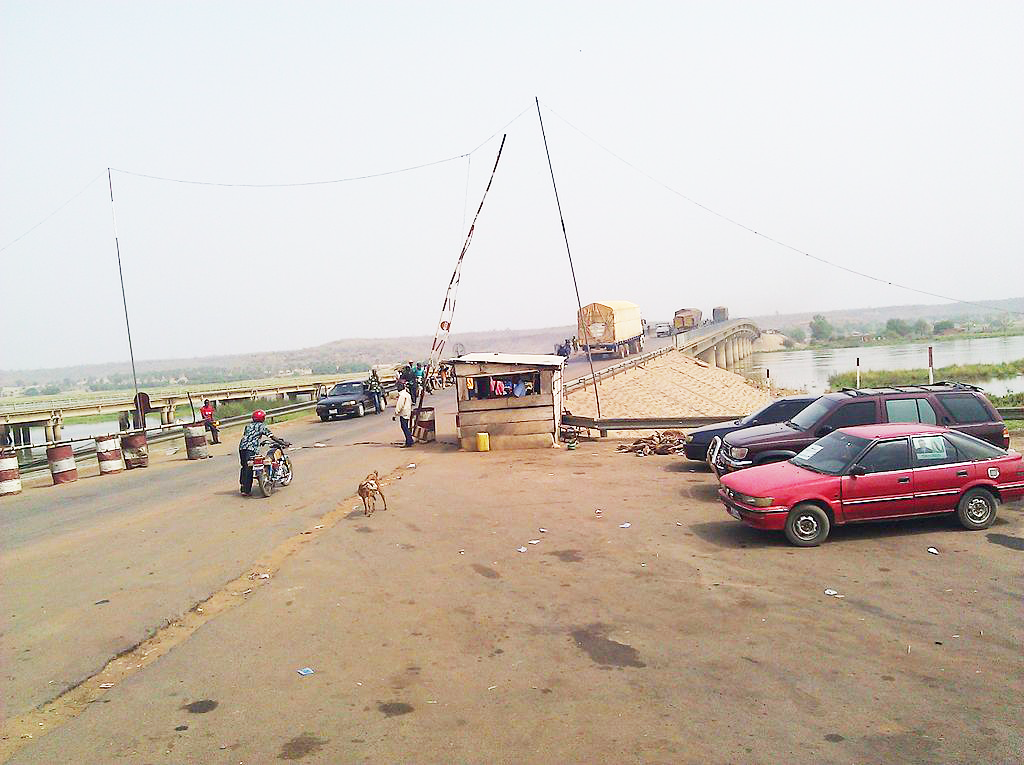
Major General Ibrahim Sallau Ali commands the MNJTF and greets officers from contributing states
“The success of Operation Nashrul Salam underscores the effectiveness of psychological operations in counter-terrorism efforts.”
In February 2024, the Multi-National Joint Task Force (MNJTF)[i] launched Operation Nashrul Salam to dislodge Boko Haram from its bases around Lake Chad in the border region between Nigeria, Niger, Chad, and Cameroon. Although operations with similar objectives have been carried out regularly for several years,[ii] the MNJTF has renewed hopes that this time the operation will be more lasting and decisive. The excerpted article in Daily Nigerian from 3 May detailed the MNJTF’s optimism about the operation, and highlighted how it differs from previous operations, namely in its use of psychological operations.
According to the article, written by the MNJTF chief of military public information, Lieutenant Colonel Abubakar Abdullahi, the Lake Chad basin region is the lynchpin of security in West Africa. This was home to some 30 million people until Boko Haram launched an insurgency in 2010 that created widespread unrest and displacement in the region. This time, to dislodge Boko Haram, the MNJTF is not relying on the “hard approach” to countering terrorism[iii] but rather on what Abdullahi describes as a psychological operation.
The operation involved dropping fliers over islands where Boko Haram has hideouts in Kanuri, Hausa, Arabic, French, and English, the five languages spoken around Lake Chad. According to the article, many Boko Haram members surrendered after receiving information about how to defect and enter rehabilitation programs. The article also credits another non-kinetic program called Quick Impact Projects for assisting large numbers of villagers from the Chadian portion of Lake Chad to return to their home villages. MNJTF then provides security so the villagers can recommence their fishing activities and regain their livelihoods. In total, 95 Quick Impact Projects have been implemented in 31 villages, which have impacted an estimated 3,200 people. While Abdullahi may have embellished the success of the operations, the article illustrates that the MNJTF is prioritizing “soft approaches” to counter-terrorism. Such approaches have long been called for by civil society as a complement to the MNJTF and Lake Chad basin region armies’ own kinetic operations and will likely be considered a welcome development.
Sources:
“How troops of MNJTF are progressing towards Lake Chad Basin stabilization,” Daily Nigerian (English and Hausa-language newspaper covering important matters affecting Nigeria, including corruption and military affairs), 8 May 2024. https://dailynigerian.com/troops-mnjtf/#google_vignette
The Lake Chad Basin serves as lifeblood for tens of millions, a unique ecological sanctuary, and a lynchpin in regional stability. Amidst its abundant resources, however, the region has faced its share of turmoil, exacerbated by the shadow of Boko Haram and other insurgent groups.
Enter the MNJTF, a coalition of forces from Cameroon, Chad, Niger, Nigeria and Benin Republic, established with the purpose of counteracting the threat posed by these insurgent groups. Its multifaceted approach, combining kinetic and non-kinetic efforts, has proven effective. Notable successes include the dislodgement of insurgents from its strongholds, rescue of hostages, and reductions in the frequency and severity of attacks in the region. Moreover, the MNJTF has played a major role in facilitating the return of displaced persons and the rehabilitation and reconstruction of the affected areas.
The MNJTF has conducted Operation Nashrul Salam, a non-kinetic approach to break the cycle of terror. This psychological operation was tailored to foster surrender and disrupt unity among the terrorist factions. Operation Nashrul Salam disseminated messages across the Lake Chad region in 5 languages, Kanuri, Hausa, Arabic, French, and English, to ensure widespread comprehension. These tailored messages were air-dropped over specific islands known to harbour terrorists, targeting them directly in their hideouts. The operation’s impact was profound, culminating in a significant number of terrorists surrendering.The MNJTF has executed Quick Impact Projects throughout the four sectors of the MNJTF. In particular, after successful kinetic operations, over 3,200 residents of the Bagatelerom community in Chad have returned to their ancestral homes, with MNJTF personnel assisting their resettlement in partnership with relevant agencies.
Notes:
[i] The Multinational Joint Task Force (MNJTF) comprises the four Lake Chad basin states, including Nigeria, Cameroon, Chad, and Niger, as well as Benin and is intended to involve “sharing plans and intelligence, committing troops for longer operations and improving troops’ human rights compliance.” The MNJTF has not significantly reduced Boko Haram attacks or border incursions around Lake Chad, despite claiming several offensives against the group have been successful. See: , “What Role for the Multinational Joint Task Force in Fighting Boko Haram?,” Report #291, International Crisis Group, 7 July 2020. https://www.crisisgroup.org/africa/west-africa/291-what-role-multinational-joint-task-force-fighting-boko-haram
[ii] See: Jacob Zenn, “Multinational Joint Task Force Lauds Counterterrorism Success Against Boko Haram,” OE Watch, 05-2023. https://fmso.tradoc.army.mil/2023/multinational-joint-task-force-lauds-counterterrorism-success-against-boko-haram/
[iii] The “soft approach” refers to “all non-military measures adopted by a government in addressing the root causes and containing the spread of terrorism and violent extremism.” This would include flier drops to encourage Boko Haram members to surrender as well as programs to reduce socio-economic inequality, create jobs, and foster political inclusion. In contrast, the “hard approach” to counter-terrorism refers to all military actions taken to contain terrorism, such as the use of air strikes and raids into Boko Haram hideouts. See: Ugwueze, M. I., Onuoha, F. C., “Hard Versus Soft Measures to Security: Explaining the Failure of Counter-Terrorism Strategy in Nigeria.” Journal of Applied Security Research, 15(4), 547–567, (2020).
Image Information:
Image: Major General Ibrahim Sallau Ali commands the MNJTF and greets officers from contributing states
Source: NAweb, https://commons.wikimedia.org/wiki/File:Gen_Ali_with_the_MNJTF.jpg
Attribution: CC x 2.0

.jpg)


